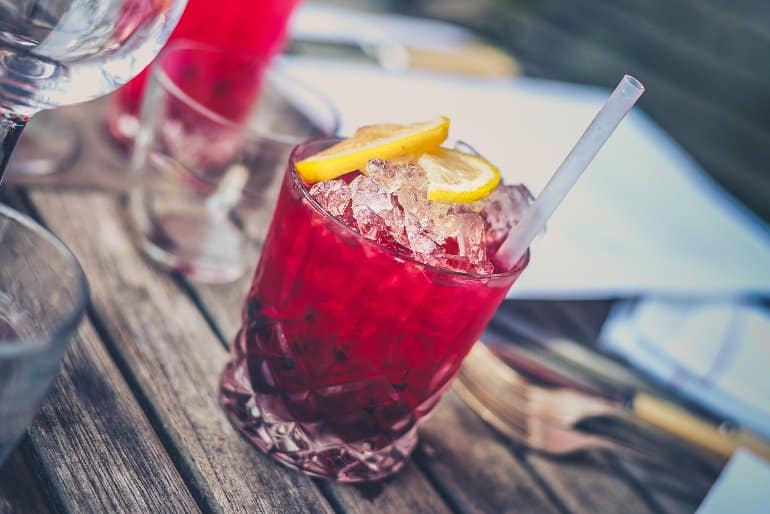You won't need this since your doctor has already told you no alcohol.
Here is what your doctor will use, no thinking required:
Safest level of alcohol consumption is none, worldwide study shows
And this for the opposite of what your doctor will say:
Increased risk for all-cause dementia in people who abstain from alcohol
There is this line in one of my research findings:
Light-to-moderate alcohol consumption is associated with a decreased risk of ischemic stroke.
My bias in full display in this post:
Alcohol for these 12 reasons.
A Protective Probiotic Blunts the Ill Effects of Alcohol
Summary: Mice treated with a probiotic recovered from alcohol exposure and suffered fewer health effects than those not treated with the probiotic.
Source: American Society of Microbiology
Excessive alcohol consumption leads to painful hangovers and accompanying headaches, fatigue, and nausea. Drinking alcohol has also been linked to a raft of health problems in the human body, including heart disease, cirrhosis, and immune deficiency.
One way to avoid those
consequences would be to drink less, but researchers in China have
introduced another way to mitigate hangovers and other adverse outcomes —
a genetically-engineered probiotic.
In a paper published this week in Microbiology Spectrum,
the researchers described their approach and reported that in
experiments on mice, the treatment reduced alcohol absorption, prolonged
alcohol tolerance, and shortened the animals’ recovery time after
exposure to alcohol.
The probiotic hasn’t yet been tested on
humans, but the authors predicted that if it confers the same benefits,
it could present a new way to reduce alcohol-induced health problems,
and liver problems in general.
Meng Dong, Ph.D, at the Chinese
Academy of Science’s Institute of Zoology, who worked on the study,
noted that clinical applications may extend beyond alcohol-related
conditions. “We believe that genetically engineered probiotics will
provide new ideas for the treatment of liver diseases,” she said.
The
human body primarily uses forms of an enzyme called alcohol
dehydrogenase, or ADH, to metabolize alcohol. But some variants are more
effective than others: Some studies have found that a form called
ADH1B, found primarily in East Asian and Polynesian populations, is 100
times more active than other variants.
Previous studies on mice
have shown that viral vectors genetically engineered to express ADH1B
can accelerate the breakdown of alcohol, but that approach hasn’t been
shown to be safe in humans.
Motivated by those findings, Dong
and her colleagues looked for a safer delivery method, focusing on the
probiotic Lactococcus lactis, a bacterium often used in fermentation.
They used molecular cloning to introduce the gene for human ADH1B into a
bacterial plasmid, which was then introduced into a strain of L.
lactis.
Lab tests confirmed that the probiotic secreted the
enzyme. The researchers encapsulated the probiotic to ensure it would
survive against stomach acid, then tested it on 3 groups of 5 mice, each
exposed to different levels of alcohol.
Untreated mice showed
signs of drunkenness 20 minutes after exposure to alcohol. When the mice
were placed on their backs, for example, they were unable to get back
on their feet.

But
in the group that received a probiotic that expressed human ADH1B, half
the mice were still able to turn themselves over an hour after alcohol
exposure. A quarter never lost their ability to turn themselves over.
Further
tests showed that 2 hours after exposure, blood alcohol levels in the
control group continued to rise, while those in the probiotic-treated
mice had begun to fall. In addition, the researchers found that treated
mice showed lower levels of lipids and triglycerides in their livers,
suggesting that the probiotic could alleviate alcohol-related damage to
that organ.
The next step, Dong said, is to investigate
whether the potential therapeutic effect of the modified probiotic
extends to humans.
“We are excited about the improvement of recombinant probiotics in acute alcohol-induced liver and intestinal damage,” Dong said.
About this alcohol and pharmacology research news
Author: Joanna Urban
Source: American Society of Microbiology
Contact: Joanna Urban – American Society of Microbiology
Image: The image is in the public domain
Original Research: The findings will appear in Microbiology Spectrum
No comments:
Post a Comment